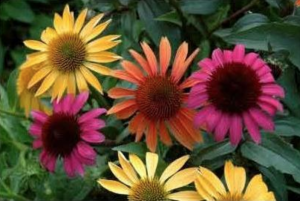Trying to plan your yard or garden’s landscaping but also trying to place a precedence on plants that don’t need too much watering or maintenance? We hear you – choosing drought-resistant plants is a great way to cut down on your water bill as well as the amount of work you’ll have to put in to keep them alive and thriving. But which drought-tolerant plants are best for your landscaping efforts?
Living Fences: How Can Vertical Landscaping Enhance Your Outdoor Space?
If you’re looking for a way to introduce some green to your urban space or want to take your backyard up a level in terms of privacy, a living fence is the way to do it. Introducing vertical greenery is an excellent way to make the most of your outdoor living area. However, you should be particular about which plants you plan to use in your living fence – check out this simple guide to vertical landscaping. Read More
How to Tell if Plants, Shrubs, and Trees Are Healthy When Buying Them For Your Yard
Are you thinking about adding new plants, shrubs, or flowering trees to your yard now that spring has arrived? No matter where you’re shopping, it’s critical to be able to discern whether or not a plant is healthy before you bring it home. Hometown Landscape is here with a quick guide on how to spot healthy plants, trees, and shrubs next time you’re shopping for additions to your property. Read More
Prepping Perennials for the Winter
 Fall is upon us and it is time to start prepping your garden to survive the winter. Taking good care of your garden beds in the fall will help them to thrive in the spring and summer.
Fall is upon us and it is time to start prepping your garden to survive the winter. Taking good care of your garden beds in the fall will help them to thrive in the spring and summer.
After the first frost has struck and your foliage begins to yellow off and die, cut back the plants to help them survive the winter. Cutting back the plants helps to keep the water inside the roots instead of feeding to the leaves.
Feed your plants – Fall is a great time to work compost into your flower beds. Compost will break down over the winter, releasing nutrients and improving your soil structure
Mulch– after the ground has frozen, remove old mulch and replace or add hay to help catch and hold snow. This extra layer will help to insulate the bed as well.



